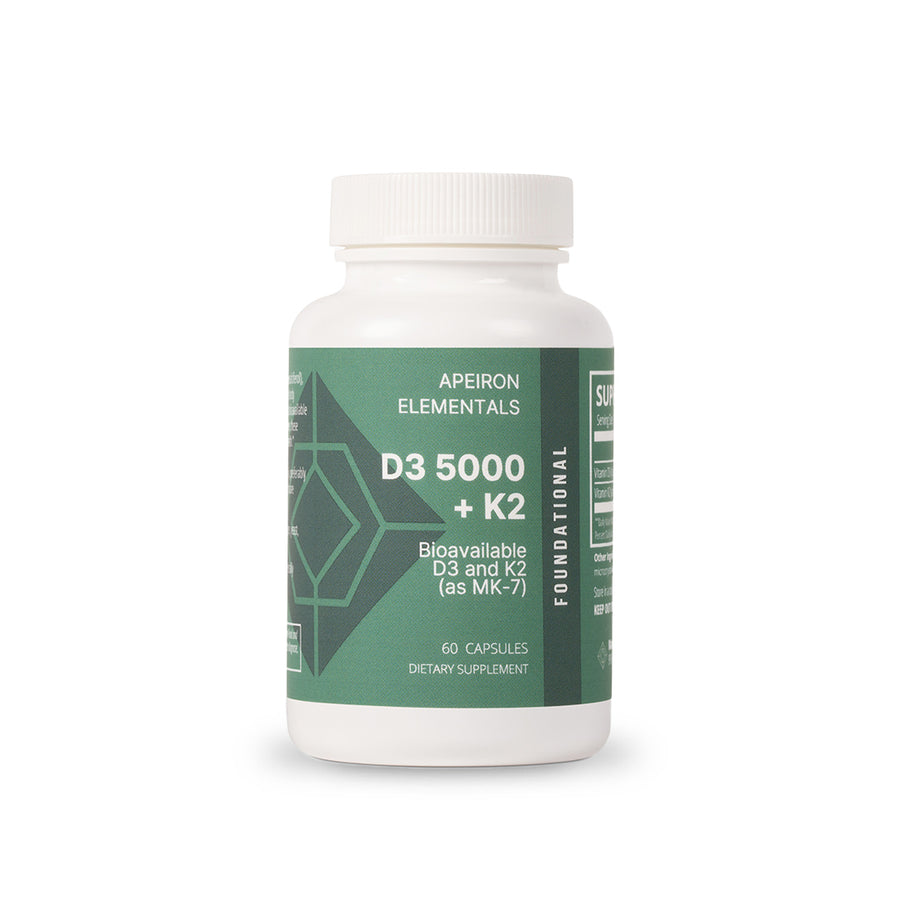
Maintaining healthy levels of vitamin D or cholecalciferol is paramount for health and longevity. Vitamin D3 deficiency and low serum levels can have a significant impact on your overall well-being, leading to various health imbalances that can disrupt your life. In this blog post, we will explore the health concerns associated with low levels of vitamin D as well as indicators and ways to prevent deficiency.
Understanding Vitamin D
Vitamin D3, a fat-soluble vitamin and a secosteroid (pro)-hormone, has a complex relationship with hormones and is thought to be involved in over 160 metabolic processes in the body, affecting:
✔️Immune system resilience
✔️Bone metabolism along with calcium and phosphorus homeostasis
✔️Free radicals and inflammatory response
✔️Fertility
✔️Cognitive and muscle function
Vitamin D may also play a role in the cardiovascular system, along with combating depression, pain, and even cancer.
Vitamin D is also known as the "sunshine vitamin". The skin synthesizes the most common form of vitamin D after exposure to ultraviolet B radiation from the sun. However, the sun provides little to no vitamin D from October to April, so supplementation is important during this time. Additionally, genetics can influence your body’s ability to synthesize vitamin D efficiently. Your healthcare provider can tell you your vitamin D level with a simple blood test.
Signs of Vitamin D3 Deficiency
A deficiency occurs when there is an insufficient amount of vitamin D in the body, leading to various health complications. Recognizing the symptoms of low or deficient vitamin D is the first step towards addressing it. Common symptoms include:
- Osteoporosis and Fractures: Vitamin D is vital for calcium absorption. Without adequate vitamin D, bones can become thin, brittle, and prone to fractures. Osteoporosis, a condition characterized by weak bones, is commonly associated with long-term vitamin D deficiency.
- Cardiovascular Diseases: Emerging research suggests that low levels of vitamin D can increase the risk of cardiovascular diseases. It is believed that vitamin D helps regulate blood pressure and maintains the health of blood vessels.
- Chronic Pain and Fibromyalgia: Chronic pain conditions, such as fibromyalgia, have been linked to low vitamin D levels. Ensuring adequate vitamin D intake may help alleviate chronic pain symptoms.
- Cognitive Impairment & Mood Changes: Vitamin D deficiency is also linked to cognitive decline in older adults. Low levels of this vitamin can increase the risk of dementia and other cognitive disorders.
- Chronic Pain and Fibromyalgia: Chronic pain conditions, such as fibromyalgia, have been linked to low vitamin D levels. Ensuring adequate vitamin D intake may help alleviate chronic pain symptoms. Vitamin D plays a crucial role in the immune system. A deficiency can lead to a weakened immune response, making you more susceptible to infections and illnesses.
- Fatigue and Muscle Weakness: One of the most common signs of vitamin D deficiency is persistent fatigue. You might feel tired even after a full night’s sleep. Additionally, you may experience muscle weakness and cramps more frequently.
- Slow Wound Healing: If your cuts and bruises are taking longer to heal, it might be due to low levels of vitamin D.
Optimizing Your Health
Maintaining healthy vitamin D levels is essential for maintaining overall health. Here are some effective strategies:
☀️Sun Exposure: Spend time outdoors in the sunlight. Aim for at least 10-30 minutes of midday sunlight several times a week. However, the exact time needed can vary based on your skin type, location, and season.
🐟Dietary Sources: Incorporate vitamin D-rich foods into your diet. Some excellent sources include fatty fish (like salmon, mackerel, and sardines), egg yolks, fortified milk and cereals, and beef liver.
💊Supplements: Consider taking a vitamin D supplement, even better - try one with vitamin K2 in the form of menaquinone-7 for improved utilization and additional benefits:
✔️ Support of Bone Health by Promoting Carboxylation of Bone Proteins*
✔️ Bolstering and Balancing the Immune System*
✔️ Promotion of Cardiovascular Health by Affecting Arterial Calcium Deposits*
✔️ Encouragement of Healthy Blood Clotting*
~Consult with your healthcare provider to determine the appropriate dosage for your needs
🩺Regular Check-Ups: Get your vitamin D levels checked regularly, especially if you have risk factors for deficiency. This can help catch any deficiencies early and allow for timely intervention.
Vitamin D3 is an essential nutrient that can significantly impact your health and quality of life. Ask your healthcare provider to check your levels at your next visit and give Apeiron Elementals’ vitamin D3 5000 and K2 supplement a try.
Visit our website and explore our line of leading edge formulas today.
The Elementals Blog
Evidence-based guides for optimal performance and healthy living.





























